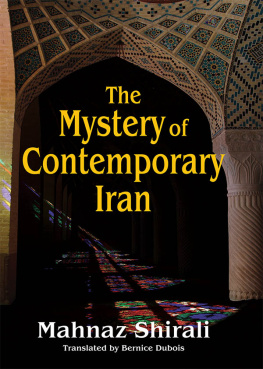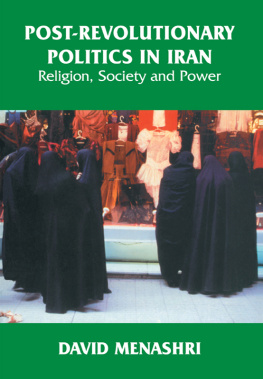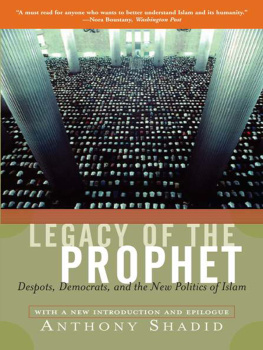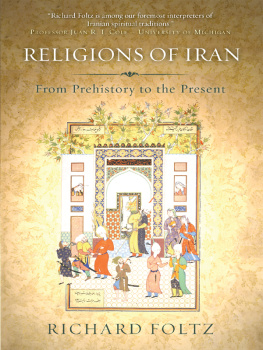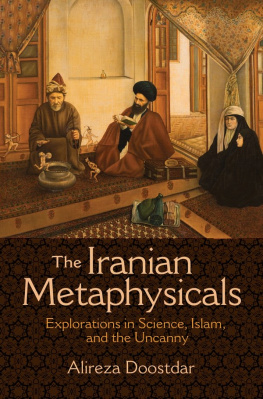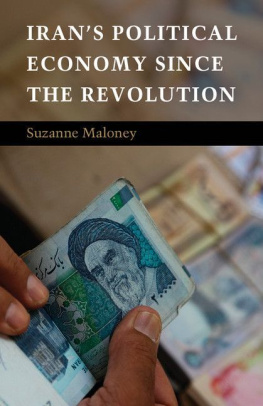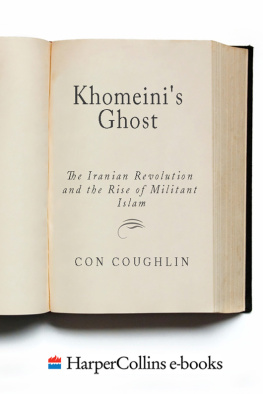To Silenced Voices
Published in 2008 by I.B.Tauris & Co Ltd
6 Salem Road, London W2 4BU
175 Fifth Avenue, New York NY 10010
www.ibtauris.com
In the United States of America and Canada distributed by Palgrave Macmillan, a division of St. Martins Press, 175 Fifth Avenue, New York NY 10010
Copyright Behrooz Ghamari-Tabrizi, 2008
The right of Behrooz Ghamari-Tabrizi to be identified as the author of this work has been asserted by the author in accordance with the Copyright, Designs and Patent Act 1988.
All rights reserved. Except for brief quotations in a review, this book, or any part thereof, may not be reproduced, stored in or introduced into a retrieval system, or transmitted, in any form or by any means, electronic, mechanical, photocopying, recording or otherwise, without the prior written permission of the publisher.
International Library of Iranian Studies 16
ISBN: 978 1 84511 879 2 HB
978 1 84511 880 8 PB
A full CIP record for this book is available from the British Library
A full CIP record is available from the Library of Congress
Library of Congress Catalog Card Number: available
Acknowledgments
I always knew but never truly understood how difficult it would be to write a few words of gratitude to acknowledge those who contributed to the birth of this work. Writing a book is a collective work. It is the outcome of the interaction between complex layers of networks, accommodations, intellectual exchanges, emotional connections, and yes, everybodys omnipresent concern, financial support. Acknowledging every person and institution that supported this work is impossible.
I must begin by recognizing my teachers, those from whose knowledge and wisdom I have benefited. The very first time that I had to find my way in the meandering world of ideas, Hossein Zahiri, known to all his friends for his immense knowledge of history and philosophy simply as Doktor, inspired me and taught me how to be an engaged intellectual. I was admitted to graduate school at the University of California in Santa Cruz merely because a number of faculty members in the department of sociology trusted that I was up to the task. Bill Domhoff and Andrew Szasz recognized my intellectual thirst and made sure that bureaucratic barriers did not hinder my academic ambitions. Paul Lubeck has always championed my work and offered insights at moments I most needed them. Edmund Burke III made sure that my conceptual world would stand the test of history and my history was framed by plausible concepts. I thank him for allowing me to be greedy with his time. R. W. Connell taught me the possibility of thinking from the margins and surviving in the mainstream. I was truly blessed to be a part of a vibrant intellectual community in Santa Cruz where I could learn from scholars such as James Clifford, Donna Haraway, James OConnor, Dana Takagi, Johan Brown Childs, Craig Reinerman, Mark Traugott, and Walter Goldfrank.
Many others, in casual talks or formal meetings, have posed questions and offered me answers throughout the years of working on this project. Mentioning their names will not suffice to express my appreciation, Asef Bayat, Linda Herrera, Ali Rahnema, Minoo Moalem, Saba Mahmood, Sami Zubaida, Farzin Vahdat, Valentine Moghadam, Michael Burawoy, Ahmad Sadri, Charles Kurzman, Richard Martin, Armando Salvatore, Fatemeh Keshavarz, and Ahmet Karamustafa. I am also indebted to many who post comments on the list serve of Study of Islam Group of the American Academy of Religion. I thank Omid Safi and Jonathan Brockopp for being the force behind this endeavor.
I received an invaluable joint fellowship from the SSRC and Wissenschaftkolleg z Berlin for two sessions of a summer institute. The institute conveners Thomas Philipp, Serif Mardin, Said Amir Arjomand, and Charles Butterworth were most gracious hosts who facilitated discussions with utmost integrity and vigor. I learned immensely from every member of the group in the formative stages of my project.
I have also received generous funding from other academic institutions, the University of California Regents IGCC Fellowship, United States Institute of Peace, NEH Summer Fellowship, Georgia State University Research Initiation Grant, and a residential postdoctoral fellowship from the Center for the Humanities at Wesleyan University. Elizabeth Traube, the Director of the Center, created the best working environment one can wish for, from the elegance of the office space to the rigor of weekly lectures and discussions. While at Wesleyan, I enjoyed the company and friendship of Sepideh Bajracharya, Khachig Tllyan, Jed Esty, and Andrea Goulet.
I would like to thank faculty members in the Sociology Department and the Middle East Studies Institute for their friendship and support, especially Chip Gallagher, Wendy Simonds, Ralph LaRossa, Toshi Kii, Donald Ried, Dona Stewart, and John Iskander. Selma Poage made departmental life much easier. Maggie McMillan and other staff members of the Interlibrary Loan office miraculously fulfilled my most obscure requests. Without the help of Nikki Siahpoush, Taka Ono, and Bill Holland, I could not manage filing and cataloguing endless pieces of documents and papers. In Atlanta, I also met Supriya Gandhi, Kaveh Kamooneh, and Roji Aldashi, and Diane Bennett whose friendships I cherish.
When I moved to Illinois, I did not realize that I had stepped into one of the most intellectually vibrant campuses in the country. I thank my colleagues in the History Department and in Sociology for making me feel at home so fast and so easily. I would especially like to thank Zohreh Sullivan and Jim Hurt for their generosity and love. I would also like to thank Faranak Miraftab, Rajmohan and Usha Gandhi, Hadi Esfahani, Niloofar Shambayati, Richard Powers, Peter Fritzsche, the Salonistas, David Prochoska, Bruce Levine, and Poshek Fu, David Roediger, Antoinette Burton, Tamara Chaplin, Ken Cuno, Marilyn Booth, Tim Liao, Jan Nederveen Pieterse, Markus Schultz, Michael Rothberg, Matti Bunzl, Barbara Sattler, and Hairong Yan. I especially thank Jane Kuntz for reading my rough manuscript patiently and offering invaluable editorial assistance. I would like to thank my editor Rasna Dhillon at I.B.Tauris for her enthusiastic hard work to make this book a reality.
Through my academic work I have also found friends whose presence in my life has made this effort more meaningful, among them are Jung Ha Kim, Zsuzsa Gille, Niloufar Haeri, Ian Fletcher, and Mazyar Lotfalian. My old friends have always offered tremendous support and encouragement, Tannaz Jafarian, Niloofar Dasti, Khosrow Khorrami, Fereshteh Ahmadi, Said Sharif, Afsaneh Khajavi, Shahin Sakhi, Asad Kabir, Shokoufeh Sakhi, Nancy Hormechea, Qumars Hakim, and Anoush Khoshbatn. I would like to thank my sister Behjat, and brothers Behdad and Bijan and my mother who all taught me the meaning of selfless love. For many years Sharon Ghamari has offered me her love, friendship, and intellectual wisdom. She has been a true friend and my most sincere critic. Nothing I have written in the last decade has been made public without her close reading and thoughtful comments.


